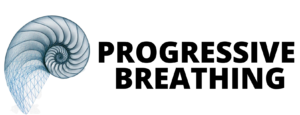Harnessing the Power of Qi Through Fibonacci Breathing
Fibona-Qi Breathing is an innovative practice that integrates the ancient wisdom of Qi energy with the mathematical elegance of the Fibonacci sequence. This method emphasizes the importance of slow, soft, deep, rhythmic nasal breathing to cultivate energy, promote relaxation, and enhance overall well-being.
The Essence of Fibona-Qi Breathing
At its core, Fibona-Qi Breathing draws from the principles of embryonic breathing found in traditional Qi-Gong practices. This technique is designed to help individuals reconnect with their breath, allowing them to tap into the life force energy (Qi) that flows within the body. By aligning our breath with the natural patterns of the universe, as expressed through the Fibonacci sequence, we can harness and amplify this energy for greater health and spiritual growth.
Understanding the Fibonacci Sequence
The Fibonacci sequence, a series of numbers where each number is the sum of the two preceding ones (0, 1, 1, 2, 3, 5, 8, etc.), is not only a mathematical concept but also a representation of natural growth patterns found in the universe. From the arrangement of leaves to the spiral of shells, Fibonacci numbers appear throughout nature. Integrating this sequence into our breathing practice encourages a harmonious flow of energy. Moreover it also creates a sense of balance and rhythm.
The Role of Slow, Deep, Soft Rhythmic Nasal Breathing
Amplifying Qi and Enhancing the Pineal Gland
In Fibona-Qi Breathing, slow, deep nasal breathing serves several vital functions:
- Qi Cultivation: Firstly, this breathing technique allows for optimal oxygen uptake and efficient energy circulation throughout the body. By engaging the diaphragm and maximizing lung capacity, we foster a deeper connection to our Qi.
- Cerebrospinal Fluid Flow: Secondly, through rhythmic nasal breathing, practitioners stimulate the movement of cerebrospinal fluid (CSF), which nourishes the brain and spinal cord. This fluid acts as a conduit for Qi, facilitating the upward flow of energy through the spine.
- Pineal Gland Activation: Finally, as the CSF rises, it reaches the pineal gland, often referred to as the “third eye.” This tiny gland plays a crucial role in regulating sleep cycles and consciousness. By amplifying its function, Fibona-Qi Breathing can lead to enhanced intuition, creativity, and spiritual insight.
Embryonic Breathing and the Microcosmic Orbit
Fibona-Qi Breathing incorporates elements of embryonic breathing—a practice that emphasizes the natural, instinctual breath patterns present before birth. This approach allows practitioners to access a deeper state of relaxation and connection to their inner selves. Additionally, as we breathe in alignment with the Fibonacci sequence, we create a rhythm that resonates with the microcosmic orbit, an energetic pathway that circulates Qi through the body.
Connecting with the Vagus Nerve
The vagus nerve, also known as the “wandering nerve,” plays a significant role in our parasympathetic nervous system. Fibona-Qi Breathing helps to activate this nerve, promoting a state of calm and relaxation. By focusing on the breath, practitioners can regulate their heart rate, reduce stress, and enhance emotional well-being.
Why Fibona-Qi Breathing?
Fibona-Qi Breathing offers a transformative practice that merges ancient wisdom with contemporary understanding. By engaging in this rhythmic breathing technique, individuals can tap into their Qi, enhance cerebral function, and promote spiritual awakening. This method not only improves physical health but also fosters a deeper connection to the self and the universe, making it an invaluable tool for anyone seeking holistic well-being.
Explore the art of Fibona-Qi Breathing at Progressive Breathing and discover the profound benefits it can bring to your life.



